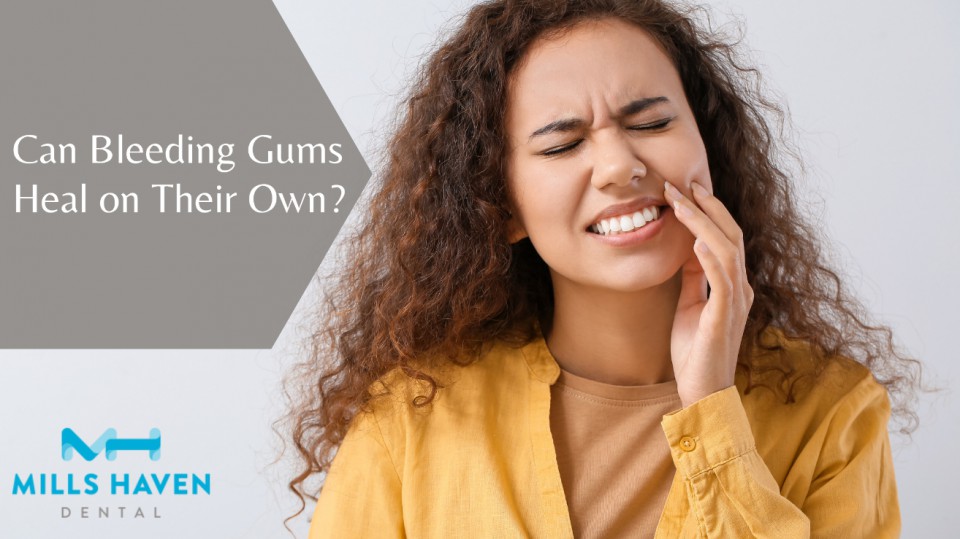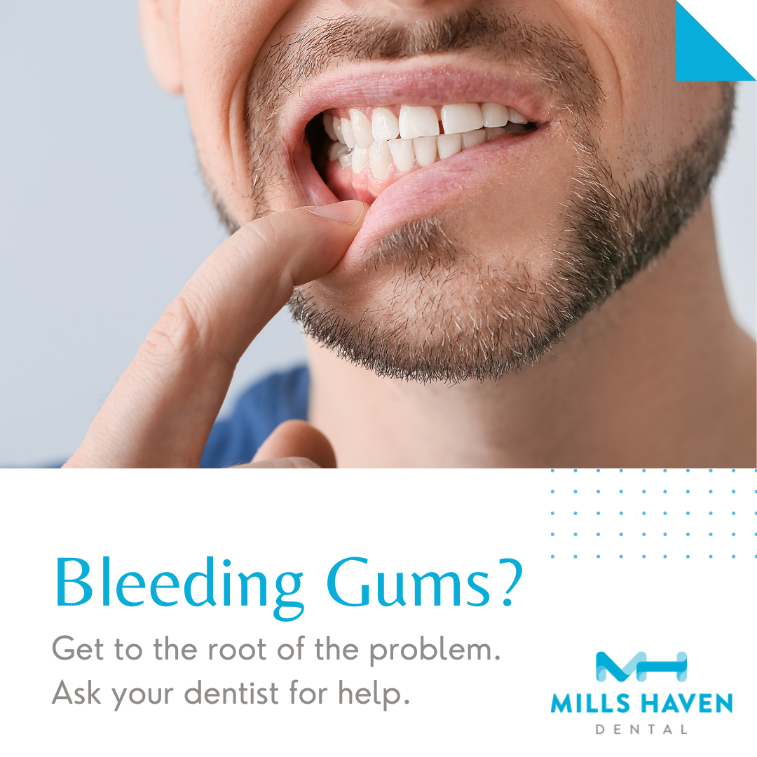Can Bleeding Gums Heal on their Own?
November 15 2020 by Mills Haven Dental

“My gums bleed. Will they get better on their own?”
That’s something we get asked A LOT and it’s not something that we can simply respond to with a “yes” or “no”.
The answer completely depends on what’s going on behind the scenes with your gums.
Just like any body part, your gums can get injured. Sometimes, injuries heal on their own with minimal intervention. Other times, they’re serious and need some extra help to heal.
Keep reading to find out when you should take bleeding gums seriously.
Bleeding During Flossing & Brushing
It’s pretty easy to ignore bleeding gums when it only happens a few minutes a day during our flossing & brushing routine. However, what you should know is that gums shouldn’t bleed just because of flossing or brushing.
This could be a sign of several factors:
-
Toothbrush bristles are too hard
-
Not brushing or flossing enough
-
Flossing or brushing too much
-
Plaque or tartar build-up
-
Infection in the gum tissue
If you bleed every time you brush your teeth, consider switching up your routine or switching out your toothbrush.
If your gums are STILL bleeding after several days, reach out to your dentist. Let them know what changes you’ve already made.
Cut on Your Gums

Our gums are made of soft tissue that can easily get damaged. At some point in your life, you’ll probably get a cut from your toothbrush, a fork, a sharp nacho chip, or something else entirely.
Most cuts on your gums aren’t anything to worry about. They might hurt or be annoying, but they’ll very likely heal on their own. If you want to speed along the healing process, you can try rinsing with saltwater or applying pressure.
But some cuts ARE serious and need the attention of your doctor or dentist. Here are some indicators that you shouldn’t take your cut lightly:
-
Large gash that is over ½ inch lengthwise
-
Bleeding won’t stop after 10 minutes
-
Cut becomes severely swollen or infected (fever, chills, pus, etc.)
-
Gums are not healing on their own after several days
When To Take Bleeding Seriously
There are so many other reasons why your gums might bleed. Pregnancy, medication, stress, and smoking are just some possible causes.
But here’s the thing… Bleeding gums can be signs of a much more serious issue: Gum disease.
Gum disease will not heal on its own without professional help. The bacteria that cause gum disease cannot be brushed or flossed away; it has already made deep pockets that cannot be reached.
If left alone, you could develop periodontitis which is a type of gum disease that can infect the BONES supporting your teeth. That can lead to your teeth falling out. What’s worse, that infection can spread through your blood and cause serious health issues.
That’s why you should ALWAYS take bleeding gums seriously. To successfully beat gum disease and stop bleeding gums, you’re going to need help from experts like us.